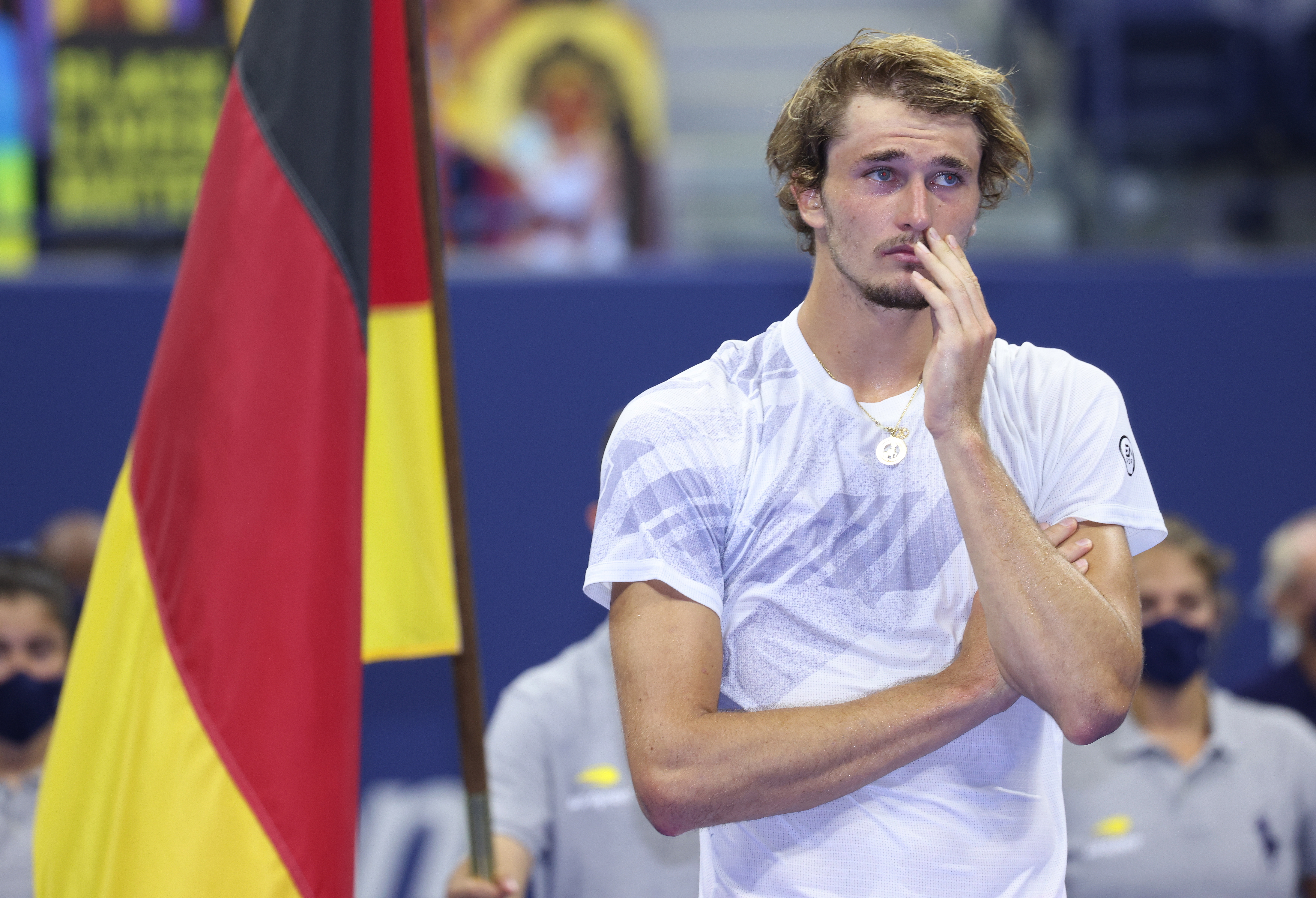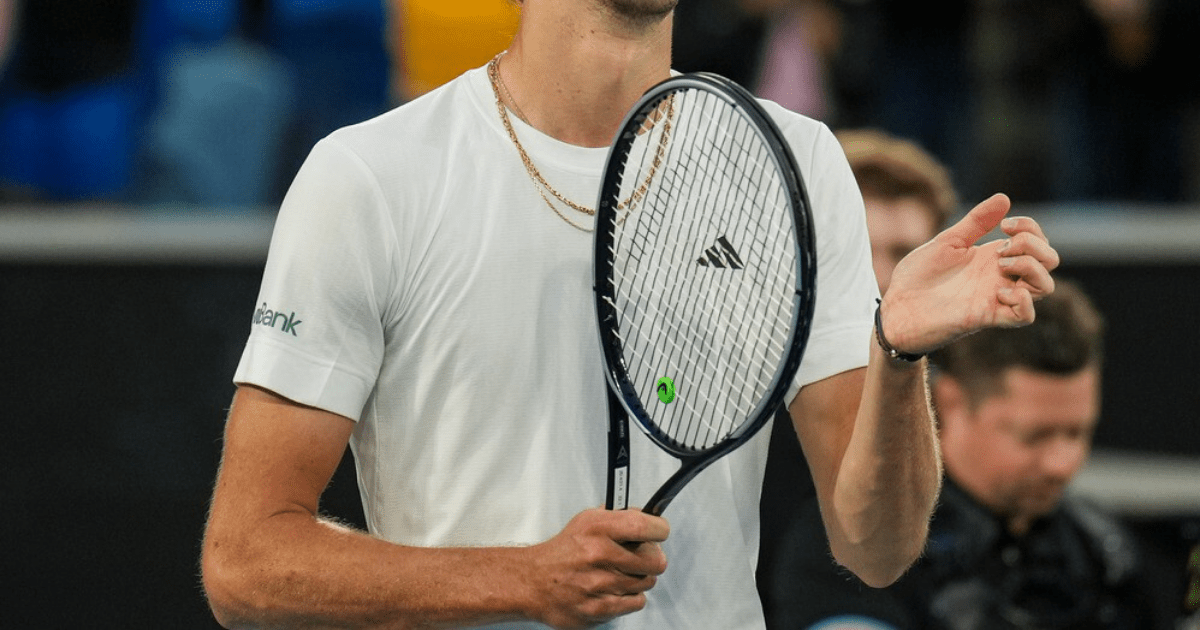Defying the Odds
German tennis player Alexander Zverev has revealed his remarkable journey from being diagnosed with diabetes to becoming a world-class athlete. Despite doctors' predictions that top-level sports would be impossible, Zverev is currently ranked sixth in the ATP rankings and is aiming to reach the semi-finals of the Australian Open for the second time.
Proving the Skeptics Wrong
Throughout his professional tennis career, which includes 580 matches, Zverev has consistently defied expectations. Medical professionals had advised him that high-level physical performance for long durations would be challenging with diabetes. However, Zverev refused to accept this limitation and has dedicated himself to proving them wrong.
A Personal Battle
Zverev has been managing diabetes since the age of three. Despite facing the challenges of monitoring his blood sugar levels, the 6ft 6ins player has demonstrated his ability to perform at a high level, even in intense conditions. He has created a foundation in 2022 to support others who also have diabetes, showing his commitment to raising awareness and helping those in need.
Fighting Spirit
Zverev's determination and fighting spirit extend beyond his battle with diabetes. Despite facing a domestic abuse trial, he was voted into the ATP player council, a testament to his skill and popularity within the tennis community. In the face of adversity, Zverev remains focused on his goals and is determined to give his all on the court.

As Zverev takes on Carlos Alcaraz in the quarter-finals of the Australian Open, he continues to inspire with his incredible journey and unwavering determination. Regardless of the outcome, his story serves as a reminder that with perseverance and belief, one can overcome any obstacle.
Frequently Asked Questions
How does mental and psycho-social training affect tennis training?
Tennis requires mental and psychological training as much as physical training. Players must learn to manage stress, maintain focus, and handle the emotional highs and lows of competition. Common techniques include visualization, goal setting, and mental rehearsals. A sports psychologist can assist players in building resilience, developing coping strategies to deal with pressure, and elevating their mental game so that it matches their physical prowess.
What type of fitness is necessary for tennis players?
Tennis is a demanding sport, requiring a combination of anaerobic fitness and aerobic endurance as well speed, strength, power, and agility. Fitness training for tennis players often encompasses cardiovascular exercises to improve endurance, plyometric and explosive exercises for speed and power, weight training for strength, as well as agility drills to enhance footwork and on-court movement. Core stability exercises and balance training also play an essential role in building the muscular endurance and coordination necessary for managing the physical demands of the sport.
What is the importance of competing in junior tennis tournaments to pursue a professional career?
A junior tournament is a key step to a successful tennis career. These tournaments give young athletes the chance to compete against peers, gain valuable experience in matches, and learn how to deal with the mental demands of competitive play. Junior tournaments also serve as a stepping stone to higher-level competitions and can significantly impact a player’s ranking, visibility to coaches and sponsors, and their overall development as a player.
Is it possible to become a tennis professional if you start late?
Even though it can be more difficult, someone who starts playing tennis later on in life is still able to reach professional status. Success will depend on the individual’s athletic ability, work ethic, dedication, and access to quality coaching and competition. Late starters will need to engage in highly focused and intensive training, and the path may be more arduous, but with talent and perseverance, reaching a professional level is within the realm of possibility.
What is the daily schedule of a professional tennis player?
The daily training regime of a top-level tennis player is both rigorous, and meticulously organized. It usually involves several hours of court time, with an emphasis on tactical drills, technical drills and match situations. The players will also take part in a fitness program designed to increase their strength, flexibility, and endurance. This includes stretching, massages, or other recovery techniques such as physiotherapy. The importance of proper nutrition and psychological coaching is also a key component to ensuring that athletes are able to maintain their peak performance, both mentally and physically.
Statistics
- Strength and conditioning coaches emphasize core strength, noting that an increase in core stability can improve shot accuracy by up to 43%.
- Studies show that superior agility and speed among tennis players can reduce their reaction time by up to 30%, which is crucial during high-level matches.
- On average, it’s estimated that only 1 in 5000 high-level junior tennis players will develop into internationally ranked professionals.
- Nutritionists report that a tennis player’s diet should consist of about 55-60% carbohydrates, 15-20% protein, and 20-25% fats during intense training periods.
- Approximately 70% of a professional tennis player’s training time is devoted to developing technique and on-court strategies.
External Links
optimumtennis.net
atptour.com
itftennis.com
wilsontennis.com
topendsports.com
How To
How to plan for your tennis training nutrition
Planning your nutrition for tennis training is critical to support your energy levels and recovery. You should consume complex carbohydrates to sustain energy. Whole grains, fruits, vegetables, and whole grain products are all good choices. Include chicken, legumes, and fish as lean sources of protein to assist in muscle repair. Healthy fats like avocados, nuts, seeds, or sunflowers can help you maintain a healthy body and increase your energy. Stay hydrated all day with water, especially before, after, and during practice. Prioritize post-training recovery with a balanced meal or snack within 30 minutes of completing your session to replenish glycogen stores and promote muscle recovery.

